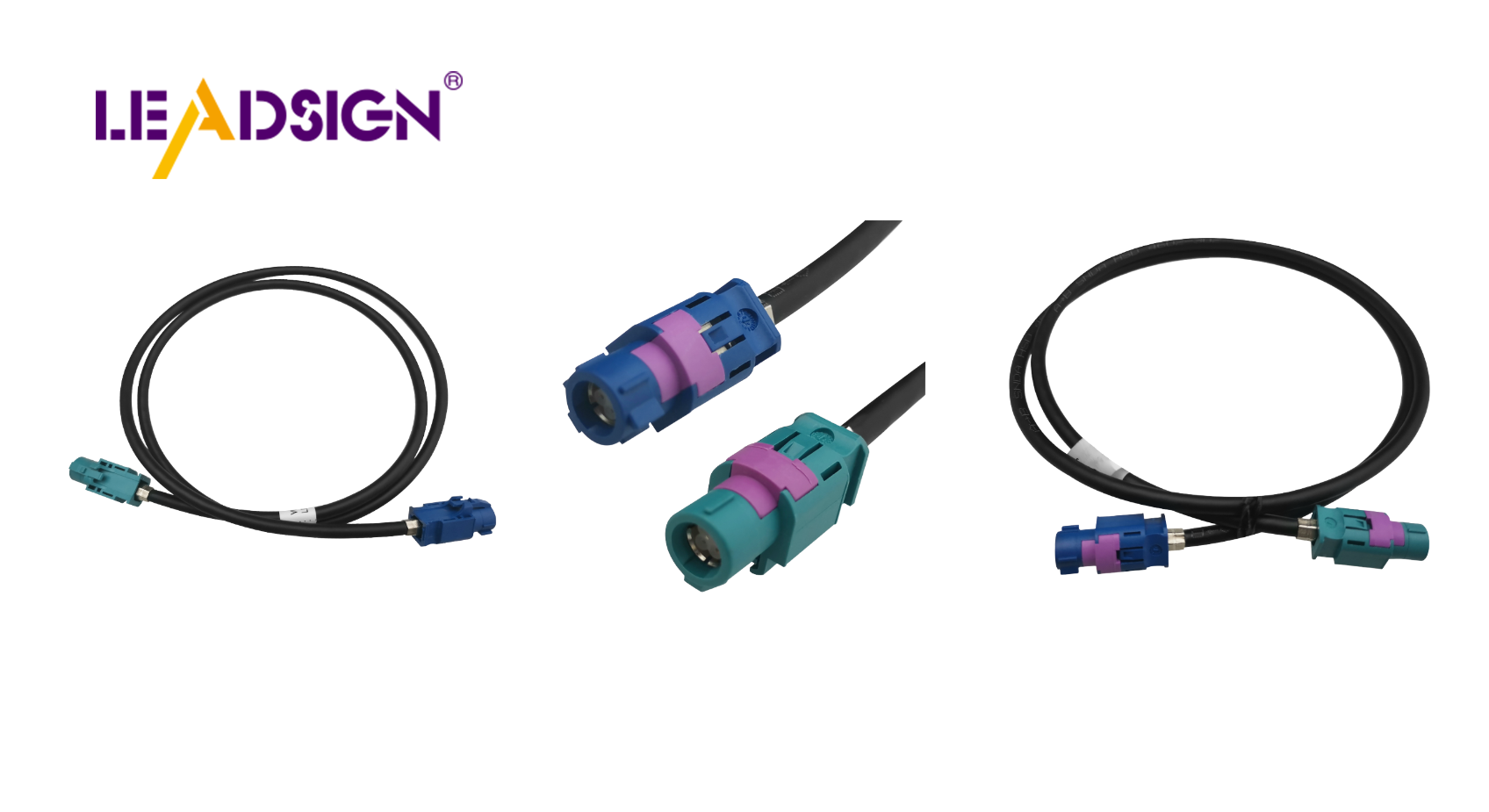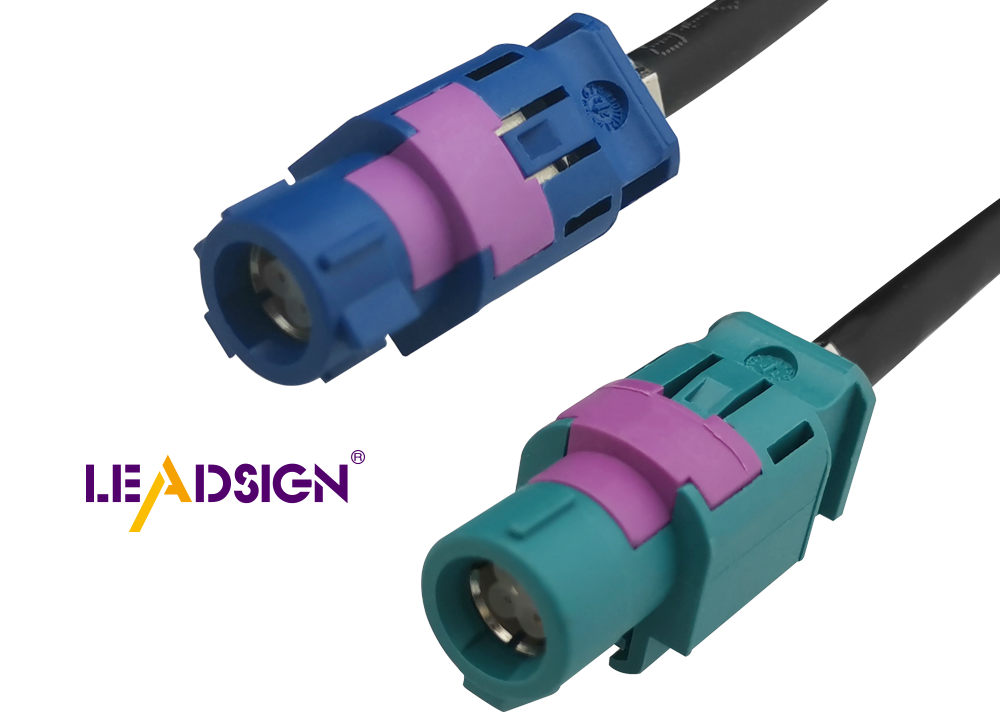Find Your Perfect Automotive Electrical Connectors Types

Selecting the appropriate automotive electrical connectors types is crucial for optimal performance of your vehicle's electrical components. With a variety of connector options available, each designed for specific tasks and environments, making the right choice can prevent issues related to heat and stress. By familiarizing yourself with the different types of automotive electrical connectors, you can make informed decisions that contribute to the longevity and reliability of your car.
Understanding Automotive Electrical Connectors Types

Knowing about different automotive electrical connectors helps you choose wisely for your car. Each type has a special job and offers certain advantages.
High-Speed Data Connectors
HSD Connector
HSD Connectors are important in new cars because they handle fast data. They work well with things like cameras, USBs, and other data tools. These connectors help your car's systems talk to each other smoothly.
Applications in Modern Vehicles
Today, HSD connectors are key in cars. They are used in electronics, entertainment systems, and even radio stations. Adding these connectors improves how your car's networks and connections work together.
Sealed Connectors
Weather Pack Connectors
Sealed connectors keep electrical parts safe from weather. Weather Pack Connectors are great for project cars as they stop water and dirt from causing problems. This keeps your car's wiring safe.
Benefits for Project Cars
For project cars, Weather Pack connectors are very useful. They last long and work well for custom builds. Using them makes sure your car's electrical system stays strong even when conditions get tough.
Connectors for Harsh Environments
Features and Durability
Connectors for tough places need to be strong against bad conditions. These types resist heat changes, shaking, rain, and salt spray. Their strength keeps your car's systems working well when it's hard outside.
Examples and Use Cases
In big machines like construction gear or farm tools, Deutsch and Weatherpak connectors are popular because they last long. They're also good for cars where reliability is needed most.
Key Points for Picking Connectors
When picking automotive electrical connectors types, think about a few things. These help you find the right connector for your car.
Power Needs
Checking Electrical Needs
Know what your car needs for electricity. Check how much current and voltage the connectors will handle. This makes sure they can carry power without getting too hot or breaking.
Matching Connectors to Power
After knowing power needs, pick connectors that fit. Choose ones with the right current and voltage ratings. This stops problems like high resistance, which can break connectors. Good connectors work well over time, keeping your car running smoothly.
Conditions of Use
Temperature and Shaking
Cars face heat and shaking often. Pick connectors that can handle these conditions. Strong connectors resist temperature changes and shaking, staying strong and working well.
Staying Reliable in Tough Spots
To stay reliable, choose connectors made for tough spots your car faces. Think about heat range and shaking levels. Good connectors keep working even when it's hard outside, stopping surprise problems.
Environment Issues
Keeping Out Water and Dirt
Things like water and dirt can hurt connector work. Pick connectors with good seals to block these out. Sealed ones stop water and dirt from getting in, keeping them working longer.
Why Sealing Matters
Materials and sealing are key for good connectors. Pick strong materials that don’t rust or wear out fast. Good seals protect from weather issues, helping them last longer.
Scientific Research Findings: Connector reliability depends on low resistance staying low. If it gets too high, they can't carry power or signals well anymore. So pick ones that fit your car's power needs and environment challenges.
By thinking about these points, you can pick the best automotive electrical connectors types for your car. This helps your car's electric parts work well and safely.
Tips and Suggestions
Picking the Right Connectors
Choosing the right connectors is important for your car. It affects how well it works and lasts. Here are some easy steps to help you choose:
Checking What You Need
Know Your Needs: First, think about what your car needs. Look at the electrical parts and what they do. If your car has cool tech like infotainment, you might need fast data connectors like HSD connectors.
Think About Weather: Consider where your car goes. If it faces bad weather or bumpy roads a lot, sealed connectors like Weather Pack connectors are best. They keep out water and dirt, making them last longer.
Check Power Levels: Find out how much power your car's systems use. Knowing this helps you pick connectors that won't get too hot or break.
Look for Strong Connectors: Choose ones that last long and are strong. Research says connector life shows how reliable they are. Testing can tell how long they'll work in tough spots.
Helpful Hints for Choosing
Do Your Homework: Learn about different connector types and brands. Compare their features and reviews to make a smart choice.
Ask Experts: Talk to people who know cars well for advice on which connectors are best for certain uses.
Pick Quality Over Price: While money matters, good quality is more important. Better connectors might cost more but save money later by needing less fixing or replacing.
Try Before You Buy: If you can, test the connectors first in a safe place before using them fully in your car to see if they work well with its systems.
By following these tips, you can find the best automotive electrical connectors for your car's needs, helping it run safely and smoothly.
Choosing the right automotive electrical connectors helps your car's systems work well. Look at power needs, weather conditions, and how strong the connectors are. Think about these things to stop problems like high resistance that can break connectors.
Final Tips:
Know what your car needs: Learn about its electricity use and tough spots.
Pick good quality over cheap price: Buy strong connectors to avoid future troubles.
By thinking about these tips, you keep your car's electric parts working great and lasting long.
See Also
Uncovering the Fundamentals of HSD Connectors in Automotive
Significance of FAKRA Connectors in Contemporary Vehicle Technology
Essential Role of FAKRA Connectors in Auto Industry
Benefits of HFM Connectors for Automotive Sector
Delving into Advantages of FAKRA Connectors in Auto Industry

